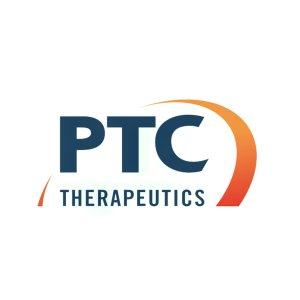CHMP Issues Negative Opinion on Translarna™ Following European Commission Request for Review
Rhea-AI Summary
PTC Therapeutics (NASDAQ: PTCT) announced that the European Medicines Agency's CHMP has issued a negative opinion on renewing the conditional marketing authorization of Translarna™ (ataluren), used for treating nmDMD. This follows a similar negative opinion issued earlier by the European Commission (EC), prompting a request for re-review. Despite the negative opinions, the existing marketing authorization remains valid pending re-examination and EC ratification, allowing Translarna to stay on the market until the end of 2024. CEO Matthew B. Klein expressed disappointment but noted the support of the STRIDE real-world evidence and key opinion leaders in the field. PTC plans to request a re-examination to ensure continued availability of Translarna.
Positive
- None.
Negative
- CHMP issued a negative opinion on renewing Translarna's marketing authorization.
- Previous negative opinion from the European Commission despite request for re-review.
- Potential for Translarna to be removed from the market after 2024 if the negative opinion is maintained.
News Market Reaction 1 Alert
On the day this news was published, PTCT declined 11.77%, reflecting a significant negative market reaction.
Data tracked by StockTitan Argus on the day of publication.
- PTC to submit a request for re-examination -
PTC plans to request re-examination of the opinion. The marketing authorization for Translarna remains in effect, pending the outcome of the re-examination procedure and subsequent EC ratification. Based on the timeline of these procedures, PTC expects Translarna to remain on the market through the end of 2024 even if the negative opinion is maintained and ratified.
"We are disappointed that the CHMP has maintained its negative opinion on Translarna despite the request of the European Commission to consider the totality of evidence including the STRIDE real world evidence in a revised opinion," said Matthew B. Klein, M.D., Chief Executive Officer, PTC Therapeutics. "The Scientific Advisory Group convened as part of this most recent review procedure concluded that the evidence of significant efficacy provided by STRIDE 'should not be ignored.' This view of the CHMP expert committee is consistent with the view of DMD key opinion leaders worldwide. We will request re-examination of the CHMP opinion to ensure that we make every effort to maintain availability of Translarna on the market for as long as possible for boys and young men with nmDMD."
About Translarna™ (ataluren)
Translarna (ataluren), discovered and developed by PTC Therapeutics, is a protein restoration therapy designed to enable the formation of a functioning protein in patients with genetic disorders caused by a nonsense mutation. A nonsense mutation is an alteration in the genetic code that prematurely halts the synthesis of an essential protein. The resulting disorder is determined by which protein cannot be expressed in its entirety and is no longer functional, such as dystrophin in Duchenne. Translarna, the tradename of ataluren, is licensed in multiple countries for the treatment of nonsense mutation Duchenne muscular dystrophy (nmDMD) in ambulatory patients aged 2 years and older. Ataluren is an investigational new drug in
About Duchenne Muscular Dystrophy (Duchenne)
Primarily affecting males, Duchenne is a rare and fatal genetic disorder that results in progressive muscle weakness from early childhood and leads to premature death in the mid-20's due to heart and respiratory failure. It is a progressive muscle disorder caused by the lack of functional dystrophin protein. Dystrophin is critical to the structural stability of all muscles, including skeletal, diaphragm, and heart muscles. Patients with Duchenne can lose the ability to walk (loss of ambulation) as early as 10 years old, followed by loss of the use of their arms. Duchenne patients subsequently experience life-threatening lung complications, requiring the need for ventilation support, and heart complications in their late teens and 20s.
About PTC Therapeutics, Inc.
PTC is a global biopharmaceutical company focused on the discovery, development and commercialization of clinically differentiated medicines that provide benefits to patients with rare disorders. PTC's ability to innovate to identify new therapies and to globally commercialize products is the foundation that drives investment in a robust and diversified pipeline of transformative medicines. PTC's mission is to provide access to best-in-class treatments for patients who have little to no treatment options. PTC's strategy is to leverage its strong scientific and clinical expertise and global commercial infrastructure to bring therapies to patients. PTC believes this allows it to maximize value for all its stakeholders. To learn more about PTC, please visit us at www.ptcbio.com and follow us on Facebook, Instagram, LinkedIn and Twitter at @PTCBio.
For More Information:
Investors:
Kylie O'Keefe
+1 (908) 300-0691
kokeefe@ptcbio.com
Media:
Jeanine Clemente
+1 (908) 912-9406
jclemente@ptcbio.com
Forward-Looking Statement
This press release contains forward-looking statements within the meaning of The Private Securities Litigation Reform Act of 1995. All statements contained in this presentation, other than statements of historic fact, are forward-looking statements, including statements regarding: the future expectations, plans and prospects for PTC, including with respect to the commercialization of its products and product candidates; PTC's plans for interactions with the European Medicines Agency (EMA); the outcome of any re-examination process; the clinical utility and potential advantages of Translarna (ataluren); PTC's strategy, future operations, future financial position, future revenues, projected costs; and the objectives of management. Other forward-looking statements may be identified by the words "guidance", "plan," "anticipate," "believe," "estimate," "expect," "intend," "may," "target," "potential," "will," "would," "could," "should," "continue," and similar expressions.
PTC's actual results, performance or achievements could differ materially from those expressed or implied by forward-looking statements it makes as a result of a variety of risks and uncertainties, including those related to: the outcome of pricing, coverage and reimbursement negotiations with third party payors for PTC's products or product candidates that PTC commercializes or may commercialize in the future; PTC's ability to maintain its marketing authorization of Translarna for the treatment of nmDMD in
As with any pharmaceutical under development, there are significant risks in the development, regulatory approval and commercialization of new products. There are no guarantees that any product will receive or maintain regulatory approval in any territory, or prove to be commercially successful, including Translarna.
The forward-looking statements contained herein represent PTC's views only as of the date of this press release and PTC does not undertake or plan to update or revise any such forward-looking statements to reflect actual results or changes in plans, prospects, assumptions, estimates or projections, or other circumstances occurring after the date of this press release except as required by law.
Acronyms:
CHMP: Committee for Medicinal Products for Human Use
nmDMD: nonsense mutation Duchenne muscular dystrophy
![]() View original content:https://www.prnewswire.com/news-releases/chmp-issues-negative-opinion-on-translarna-following-european-commission-request-for-review-302185263.html
View original content:https://www.prnewswire.com/news-releases/chmp-issues-negative-opinion-on-translarna-following-european-commission-request-for-review-302185263.html
SOURCE PTC Therapeutics, Inc.








